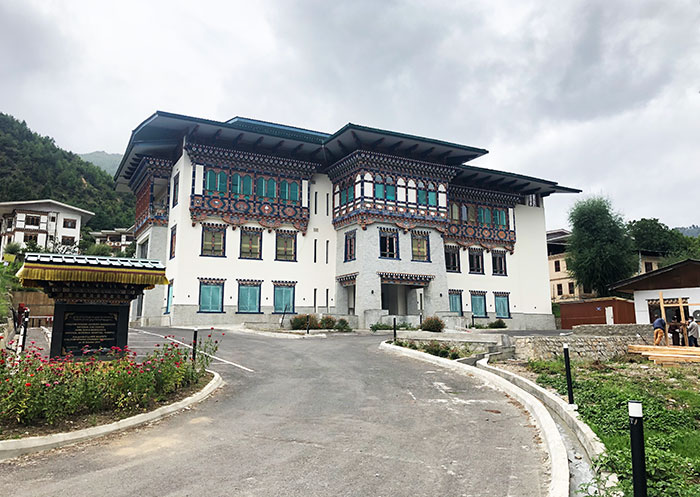
Covid-19 isolation ward at JDWNRH
Bhutan’s Covid-19 recovery rate, at 97.9%, is one of the highest in the region
Younten Tshedup
With 20 more people recovering from Covid-19 in the last 24 hours, Covid-19 recovery rate in the country stood at 97.9 percent, one of the highest in the region.
Of the total 859 positive cases confirmed so far, 841 people have recovered as of yesterday. After the recent scare following another episode of local outbreak of Covid-19, Bhutan today has only 17 active cases. Of the total active cases, four are at the national referral hospital’s Covid-19 isolation ward.
The health ministry identified five hotels as isolation facilities in Thimphu to besides the JDWNRH, as the number of positive cases shot up after December 20. The highest number of active cases the country witnessed on a single day was 355.
As of today, only one hotel has eight Covid-19 patients in Thimphu. There are four patients in the isolation facility in Paro and one in Phuentsholing.
Clinical microbiologist and member of the health ministry’s technical advisory group (TAG), Dr Tshokey, said that none of the active patients were in critical condition including those at the JDWNRH’s isolation ward.
“We have had patients as old as 85 years old and as young as two months old. All of them have recovered and gone home,” he said.
High recovery rate shouldn’t encourage complacency
Although a large number of infected people have recovered including those with pre-existing medical conditions, Dr Tshokey said that there still were a lot of unknown things about the novel coronavirus, which could be lethal in the long run.
More than a year into the pandemic, experts keep learning the effects of Covid-19 on the body. “We just don’t know so much about it, still. Even with the infection, if someone doesn’t suffer now, there are studies indicating that Covid-19 could have long-term health issues on the person.”
He said that if a person undergoes severe illness from Covid-19 and manages to recover, there is increasing evidence that shows the person’s lungs could suffer damage in the long run. “Besides the mental stress of getting infected, there are also reports of chronic fatigue after a person recovers from Covid-19.
No more de-isolation
Initially, when the country recorded few cases of Covid-19, one of the criteria to qualify an individual as ‘Covid recovered’ was the 14 days de-isolation period. After a person tested negative twice within 24 hours, he or she had to be de-isolated (usually placed in a hotel) for 14 more days.
Dr Tshokey said that more evidence now was showing positive person becoming non-infectious usually after 10 to 14 days of contracting the infection. He explained that many studies have shown that a person can remain positive for three to four months but he or she doesn’t transmit the virus.
He said that including a few cases the ministry has observed, the Gelephu woman who triggered the country’s first lockdown also showed similar evidence.
The clinical microbiologist said that the woman who had initially tested negative, later turned positive. However, none of her close contacts tested positive, meaning the woman was non-infectious.
He said that patients at the isolation facilities are kept under observation for 21 days and then after testing negative are declared recovered. However, few cases who test ‘borderline positive’ on the PCR and antibody positive are observed for additional two to three days until they turn negative on PCR.
The PCR test, besides analysing the positivity and negativity of samples, also provides the viral load in a sample. A borderline positivity is when a person is in the late stage of infection or in a recovering phase.
Dr Tshokey said that while they have done away with the de-isolation guideline, the ministry advises recovered individuals a minimum of one to two weeks of strict home quarantine.
Treatment for positive patients
Majority of the positive cases so far were asymptomatic and did not require any separate treatment. “Those who developed pneumonia were given the antiviral drug, remdesivir,” said Dr Tshokey.
He said that only two patients were given the antiviral drug this time as they were comorbid and required oxygen therapy. No one was put on a ventilator.

